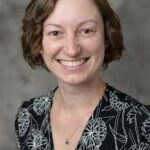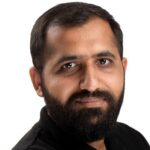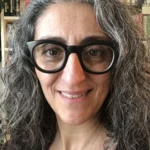Please use this link to go to the submission page. After logging in (you might need to make a user if you don’t have one) select Author submission and in the overview of tracks select “Workshops & Masterclasses”.
Workshops proposals are not anonymous and should include all authors’ names, affiliations, and contact information.
Important Dates
Submission Format & Process
Workshops submissions should:
- be no more than 3000 words, excluding references, – include all authors’ names, affiliations, and contact information, an abstract (150 words) as well as a detailed proposal including a description of the theme(s), activities, and goals of the workshop, the maximum number of participants, the length of the workshops (half-day/ full-day), and the background of the organizer(s).
- specify the means of recruiting and selecting participants.
- specify any additional equipment needed (including laptops, tablets, speakers, headphones, projectors); unless explicitly confirmed by the Chairs, the additional equipment must be supplied by the workshop organizers.
- be formatted according to the ECSCW template, available in Latex, RTF, or MS Word format.
Workshops submissions are not anonymous.
Workshops Chairs
For any queries, please, do not hesitate to contact the ECSCW 2023 Workshops Chairs at workshops@ecscw.eusset.eu.

Gabriele Marcu
University of Michigan, USA
Hamid Mehmood
Norwegian University of Science and Technology
Hilda Tellioglu
Vienna University of Technology, AustriaWorkshops Description
CSCW is a challenging and rapidly developing area of research where the exchange of ideas and discussion of concepts with other researchers provide an effective way of gaining new insights and identifying opportunities for possible collaborations.
The ECSCW 2023 Workshops provide an opportunity to engage in discussions with other researchers, present and illustrate new developments on different themes within CSCW, provoke and reflect on novel perspectives and receive feedback on early ideas in a friendly and constructive manner.
ECSCW 2023 invites workshop proposals addressing basic research questions, new methodologies and approaches, innovative technologies, and emerging research areas. Workshops are good venues for involving attendees in working together to share, reflect and develop new insights. Workshops may be half-day or full-day sessions. Outcomes might include journal special issues, blogs, or new collaborations.
We encourage accepted workshop organizers to create web-based resources for their workshops so that advertising, submission, and organization can be handled online.
If you are submitting a workshop on accessibility or assistive technology, please refer to the SIGACCESS guidelines on writing about disability.
Selection Process
Proposals will be single-blind reviewed by the Workshops Chairs and selected members of the ECSCW program committee. Selection will be based on the relevance of the proposed topic for ECSCW and the organizer(s) expertise.
Accepted workshops will need to provide an updated description of the workshop as well as workshop website, and details on position paper submission or other participation requirements, for publication on the conference website and in the EUSSET digital library.
Accepted workshops may provide an additional Workshop Program for publication in the ECSCW/EUSSET digital library. The program should contain the workshop title, 150 words abstract, objectives, participant names, and a body text and be no more than 2 pages.
Publication & Copyright Information
Accepted proposals and programs will be published in the European Society for Embedded Technologies (EUSSET) digital library (http://www.eusset.eu/digital-library).
The EUSSET digital library (DL) is an open access repository. The EUSSET DL does not ask for a full transfer of copyright from authors. Instead, it requires only sufficient rights that allow “readers to read, download, copy, distribute, print, search and link to the full texts of articles, or use them for any other lawful purpose except where otherwise noted” (for full information please see here: https://www.eusset.eu/digital-library/).
The authors will have several options when it comes to copyright upon paper acceptance:
- grant EUSSET DL a non-exclusive and irrevocable license to distribute the article, and certify that he/she has the right to grant this license;
- certify that the work is available under one of the following Creative Commons licenses and that he/she has the right to assign this license:
- Creative Commons Attribution license (CC BY 4.0)
- Creative Commons Attribution-ShareAlike license (CC BY-SA 4.0)
- Creative Commons Attribution-Noncommercial-ShareAlike license (CC BY-NC-SA 4.0)
- or dedicate the work to the public domain by associating the Creative Commons Public Domain Dedication (CC0 1.0) with the submission.
In the most common case, authors have the right to grant these licenses because they hold copyright in their own work.
